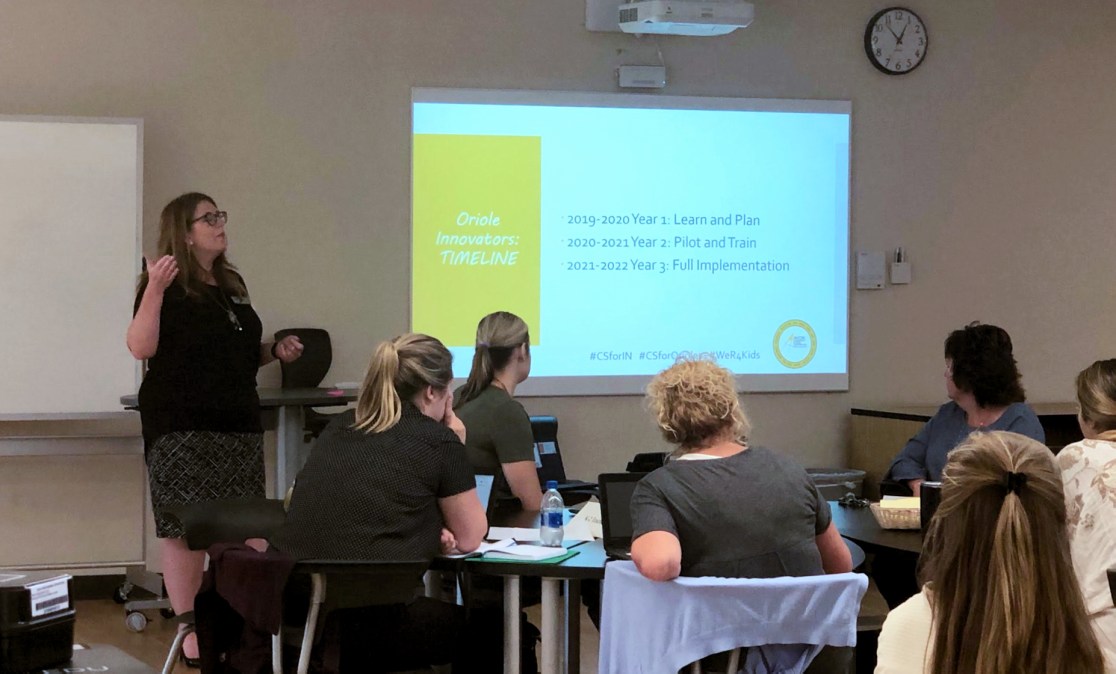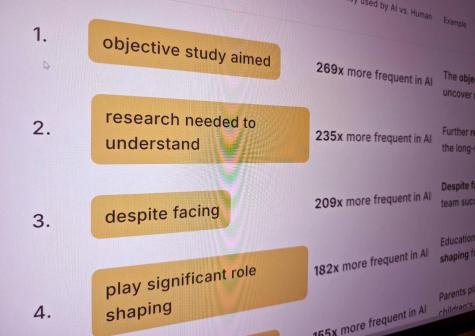Educators have a ‘moral obligation’ to prepare students for technology

In 15 years of working in education, Sara Hunter says technology has always played a role in her career. But when she began teaching her third and fourth grade students at Zionsville Community Schools in Indiana how to blog, she said it was a revelation.
“It was really through that experience that I found how transformative leveraging technology can really be,” Hunter said. “I had some students who really struggled with feeling heard and accepted and part of the class in the face-to-face environment with some of their peers. And they had some other challenges, yet through our blogging platform they found their voice. It leveled the playing field in a way I hadn’t expected as a classroom teacher.”

Sara Hunter (LinkedIn)
Hunter, who was recognized last month as one of EdScoop’s “NextGen: Emerging EdTech Leaders,” said that realization about blogging and the power of technology was a professional turning point, and around 2012, she started to become more involved in educational technology. She became an active member of the International Society for Technology in Education. The following year she took a new role with her school as a STEM coach, developing the framework for science, technology, engineering and mathematics courses for K-4 students.
“I was just so excited about what that could be for students,” Hunter said. “We got to play. We got to do all the fun things, you know, enrichment and robotics. And just seeing how we could extend the learning that was happening in classrooms and apply it in different ways and leveraging technology resources — that was so much fun.”
She said the program increased access to STEM learning tools that, at the time, weren’t ubiquitous like they are today. Learning to build robots from Legos and craft their own algorithms also helped students “fail forward” — a valuable life skill, Hunter said.
“Failure can be really stressful for some students who may not know how to respond to that if they’re not used to failing or not getting it right the first time,” she said. “If we as educators haven’t really developed and been intentional about creating the kind of environment that supports that risk-taking, then when our kids do fail … then I think we see kids that shut down.”
In 2014, Hunter became a Woodrow Wilson fellow with the University of Indianapolis, and started earning an MBA in educational leadership, another turning point in her career.
“That really shifted my thinking to a much broader view,” she said, “from where I had previously thought about my classroom and my school to thinking more in terms of systems and seeing how a school district works and how school districts work together in a community and how they can positively impact the community. And then even thinking more broadly about the education system as a whole.”
In 2015, Hunter took a new role as the STEM and high ability curriculum coordinator for Avon Community School Corporation in Avon, Indiana, where she got a chance to put that broader view of educational technology to work. Her work included managing state and federal grants, providing professional leadership to teachers and administrators and coordinating STEM curriculums across the district’s 12 schools and nearly 10,000 students. She helped the district develop a new computer science framework and worked with a design and implementation team to advance the district’s digital learning and STEM programming.
“This team had been really dedicated to some deep learning, as well as some exploration of first understanding what all this means as well as how might we apply it in our different settings, our different grade levels,” she said. “We’re trying to not work in silos but how can we braid the initiatives together?”
After five years with Avon, Hunter in April took a new role as a senior consultant with KSM Consulting, where she’ll advise the Indiana Department of Education as it modernizes old systems and implements the “Ed-Fi standard,” a standard for data interoperability.
Though Hunter’s work has moved further from the classroom, she said her memories as a classroom teacher who regularly saw how technology affects students continue to inspire her work today.
“These two boys were working on a character and they were trying to figure out how they could change the character to make it jump,” she said. “And when they finally got it, they erupted in this giant cheer of excitement to where these other kids were rushing over to say, “What did you do? How did you figure that out?’ Those are the moments you just love in these experiences for kids.”
It’s crucial, Hunter said, to prepare students for lives outside the classroom that will inevitably include technology in nearly everything they do.
“Digital access is constant and I think we have a moral obligation in education to be part of educating our kids on how to manage all of that,” she said. “I think there’s a shared responsibility and we’re part of that shared responsibility. It’s an exciting time in education and I’m really fortunate to be a part of it in the way that I get to contribute.”




